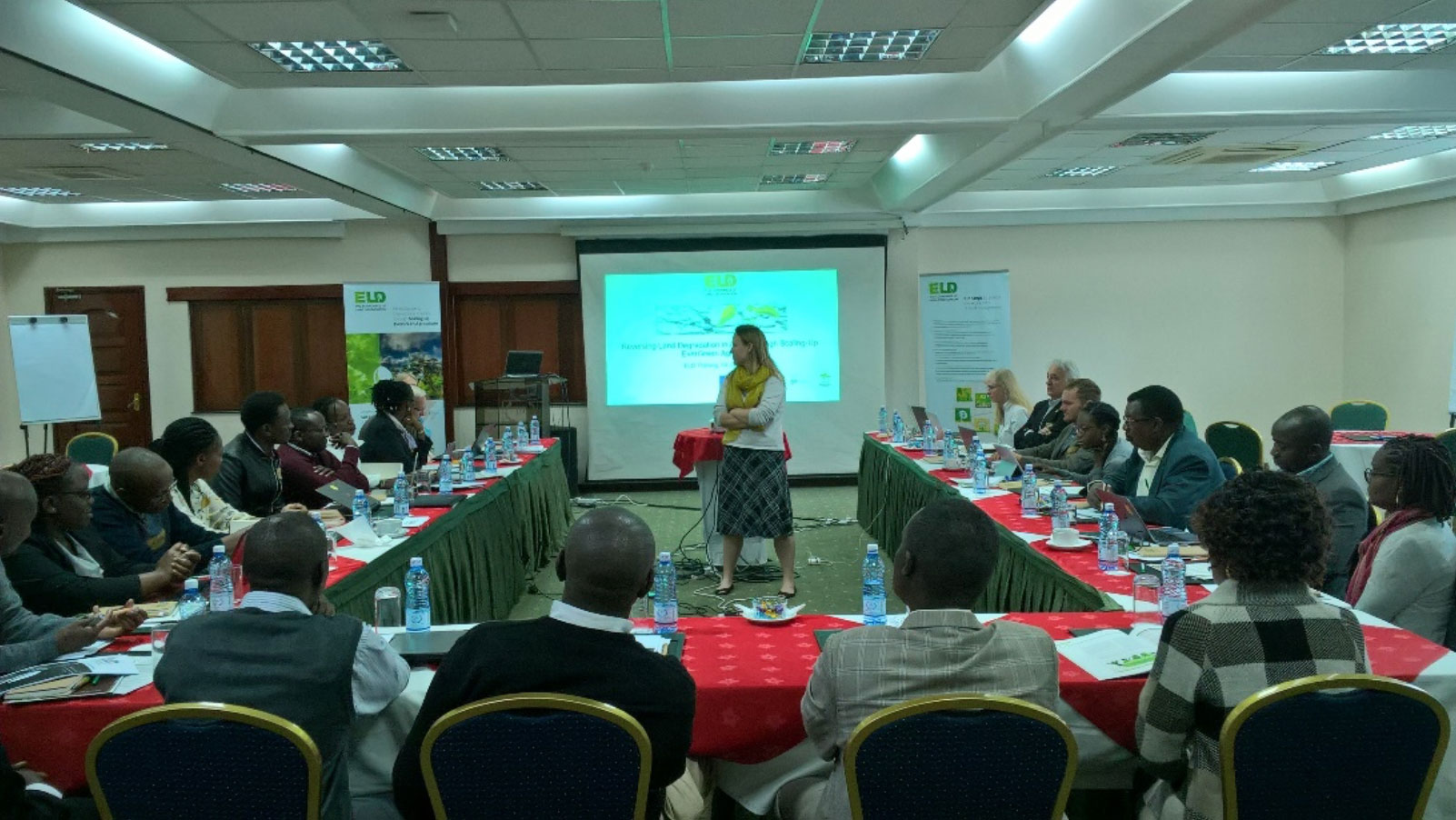By Christine Magaju
The Economics of Land Degradation (ELD) initiative organized a five-day training at Jacaranda hotel, Nairobi, Kenya, as part of the ‘Reversing Land Degradation in Africa by scaling up Evergreen Agriculture project (Regreening Africa)’s first objective on strengthening the national ability to assess the costs of land degradation and the economic benefits of investment in Sustainable Land Management (SLM).
The training drew participants from national universities (Kenyatta, Maseno, University of Nairobi, among others), County governments (Bungoma, Kakamega, Siaya), state corporation (Kenya Water Towers Agency), the Council of Governors, private sector and research organizations.

Participants in the ELD training in Nairobi, Kenya. Photo World Agroforestry Centre/ Jan Libera
The week-long training introduced participants to the 6+1 step approach to assessing the economics of land management. The approach, which has been adopted by the ELD initiative, guides users through the process of establishing scientifically sound, cost-benefit analyses with an aim of informing decision-making processes. Using practical examples, exercises and interactive sessions, the training offered participants an introduction to each of the steps in the approach as well as the methods that can be used.
At the end of the training, the participants were expected to identify case study areas and topics they would be interested in working on in the second phase, based on priority topics discussed during the project kick-off workshop in May 2018, at the World Agroforestry Centre. Some of the identified case studies include: economic valuation of grazing management practices in pastoral systems of Kenya, the economics of land use on ecosystem services in the Aberdares water tower, and economic valuation of cover crops as a sustainable land management approach in Migori County.
In addition, participants highlighted two more case studies they were keen on taking up beyond the ELD training; assessment and valuation of the ecosystem services offered by the Nairobi National park and assessing the Genuine Progress Indicator (GPI) of Kenya as a measure of the nation’s wellbeing.
Going forward, participants will develop concept notes and action plans for the identified case studies before sharing them with the ELD Secretariat for review. Participants will then, use the knowledge gained during the training, to conduct case studies culminating in a scientific report by March 2019.
This blog was produced with the financial support of the European Union. Its contents are the sole responsibility of the World Agroforestry Centre and do not necessarily reflect the views of the European Union.
